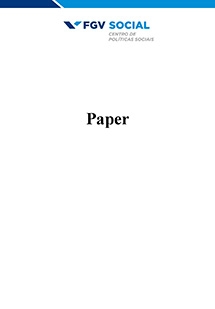
The Brazilian Education Quality Index (IDEB): Measurement and Incentives Upgrades - Buchmann, Gabriel, Neri, Marcelo Cortes
Sobre o paper:
The increasing availability of social statistics in Latin America opens new possibilities in terms of accountability and incentive mechanisms for policy makers. This paper addresses these issues within the institutional context of Brazilian educational system. We build a theoretical model based on the theory of incentives to analyze the role of incentives at the sub-national level. The first result is to demonstrate that an education target system has the potential to improve the allocation of resources to education through conditional transfers to municipalities and schools. Second, we analyze the local government’s decision about how to allocate its education budget when seeking to accomplish the different objectives contemplated by the index, which involves the interaction between its two components, average proficiency and passing rate. We discuss as well policy issues concerning the implementation of the synthetic education index in the light of this model arguing that there is room for improving the Ideb’s methodology itself. In addition, we analyze the desirable properties of an ideal education index and we argue in favor of an ex-post relative learning evaluation system for different municipalities (schools) based on the value added across different grades.




